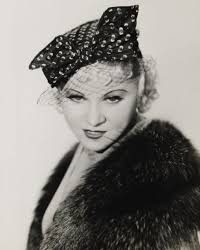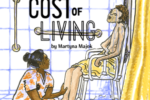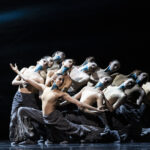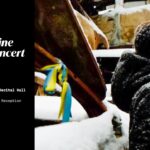“I believe in censorship. I made a fortune out of it.”
Was one of Mae West’s less famous quotes probably because it was NOT a sexual double entendre. It does, however, refer to her 1926 play The Drag, which never opened on Broadway due to censorship as it deals with the reality of Gay life in 1920’s New York. The Drag has been revived by Play Your Part productions at the Calamus Auditorium at Gay City in lower Capitol Hill, much to my delight.
For Baby Boomers, who came of age during the sexual revolution, Mae West who exposed hypocrisy and attacked sexual repression, was one of our heros. Much to my dismay, there were young people in the audience, who had never seen Mae West’s films and had not, like many of my contemporaries, memorized all her sexual double entendres (e.g. Is that a pistol in your pocket or are you just happy to see me?)
Mae West, (1893-1980) started in show biz at age 5, and had a career in vaudeville and on stage in New York City as an actress, singer and playwright before moving to Hollywood, where she acted and sang in a number of memorable films and contributed to the dialogue of her films, with her famous bad girl lines.
Obviously, censors and the Vice squad did not like her, but she turned the various raids and censorship into effective self-promoting publicity. Once, she even chose to spend ten days in jail, rather than pay a fine, when her play The Captive, Sex and Virgin Man was raided by the New York City Vice squad. 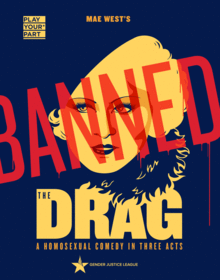
In exposing the oppressive legal structure and repressive attitudes towards Gays in the 1920’s, the play The Drag focused on three types of Gay life style choices, but neglects one obvious life style choice for many American Gays. If you were a painter, singer, dancer, actor or writer- one could run away to Paris or Berlin and live in a Bohemian milieu, where your homosexuality was more tolerated. But if you were not artistically minded and wanted to follow a more “bourgeois” occupation or were expected to work in the family business that was not as easy.
The first life style choice West presents is that of David Caldwell, played sympathetically by Varinique Davis. He discovers that he is gay at a young age, meets his true love, the scion of a prominent family, moves in with him, experiences a happy marriage, until the lover bows to family pressure and enters into a cover marriage. David Caldwell does not want to change society, he just wants to keep a low-profile and have what many other heterosexuals had at the time-the ability to marry the person they loved.
David’s lover, represents a second life style choice for Gay men in those days: Stay closeted and have a cover marriage because of family pressure and to maintain a respectable career. So he accepts a cover marriage with a sexually innocent girl but does not play by the rules. Instead of fathering children and suppressing his sexual urges, he leads a double life with the crowd from Greenwich Village, pleading business engagements to keep his wife out of the way. Collateral misery spreads exponentially from this arrangement.
The third group is the Greenwich Village “flamboyants,” who want to be open about who they are, but pay a very heavy price for it; they are constantly dodging the New York City Vice Squad. Like a menacing leitmotif, the NYC Vice Squad hovers throughout the play, as it did in West’s career
Introducing the play is a long discussion between a judge, Judge Robert Kingsbury, played very convincingly by Alexsei Cifrese and a psychiatrist, Dr. James Richmond, played by Emma Wilkinson about the legal and bizarre medical opinions surrounding homosexuality in the ‘20’s . It sounded extremely archaic, until I remembered that it was not until December 1973 that the American Psychiatric Association declassified homosexuality as a mental illness, four and a half years after Stonewall.
West managed to weave all the three types of Gay life-styles into a coherent structure with equal parts comedy and tragedy. Towards the end of the play, shortly before everything is tragically resolved, there is a drag ball. It was almost like a competition as to who could be the best drag artist. Although they were all superb, I would vote for Visage “Legs” LaRue who played Hell’s Kitchen Kate,. She was very reminiscent of a thin Dolly Parton, who is somewhat reminiscent of Mae West. 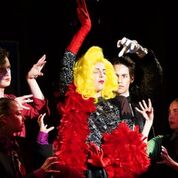
Director Michael Raimondi added some delightful original music by genius composer Elisa Money, which punctuated the action with emotion. Their original compositions were in the style of 20’s music and the audience was greeted with Cole Porter’s music before the show began.
In general the cast was excellent. Stand-outs were: Alexsei Cifresi as Judge Robert Kingbury, the father of the closeted homosexual, as well as Janette Oswald as the long-suffering and reserved butler. Varinique Davis as the tormented homosexual David Caldwell, who tries to seek a “cure,” delivered an exquisitely moving monologue. Blake Simpson’s performance as the confused and innocent young wife was perfect and provoked sadness; and they looked great in those asexual tom-boyish 20’s outfits.
The only weak actor was Emma Wilkinson, who played Dr. James Richmond. Their over the top campiness and excessively nervous gestures distracted the audience from the otherwise very serious content of her conversation, so the humor fell flat
Costumer Pete Rush somehow managed to assemble several very authentic low-waisted 20’s dresses for the “ladies,’” which were just to die for, as well as several dark grey pin-strip suits for the “gentlemen.” The drag costumes could not have been more hilarious.
Although this is clearly a Gay Themed show, it has universal appeal; it is about real human beings trying to salvage love and happiness, while living under oppressive conditions. Historically it tells us how far we have come in terms of Gay Rights and perhaps how far we have to go. Also it is full of Mae West quotes, which is an introduction for the younger generation, because when she is good, she is very very good, but when she is bad, she is better.
The Drag by Mae West. Ply Your Part and Gender Justice League. Calamus Auditorium@Gay City, 517 E. Pike. Capitol Hill, Seattle, 98102. Fri, Sat. 8 pm. Sun 3 pm. Til June 29. Tickets https://www.brownpapertickets.com/event/4234464


